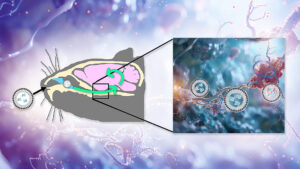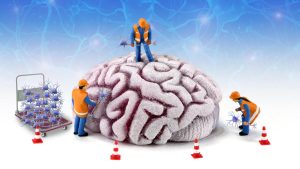Post Archive

TRIMming Tau Damage in Its Foxholes
Aberrant tau inside neurons is a key driver of Alzheimer’s disease, but nearly all the therapies in development to target it can only capture the small amount that floats outside of them. A new animal study reports impressive results in clearing aberrant tau inside neurons and rejuvenating cognitive function, opening up an important new front in damage-repair strategies for maintaining the aging brain.

Monkeying With the Clocks Via Metformin
A recent study claimed to find that metformin rejuvenated cognitive function in aging monkeys and lowered biological age on a nonhuman primate biological age clock. The details make the result unconvincing.

SENSible Question: Should We Engineer Our Mitochondria to be More Like Birds, or is That a Wild Goose Chase?
A supporter asks: Everyone knows that mitochondrial free radicals are a key driver of aging, and antioxidants don’t seem to offer any protection. Birds are supposed to have very clean-burning mitochondria, so should you maybe try to cut them off at the source by re-engineering our mitochondria to be more like those of birds?

Education Department October 2024 Updates
Read more about SRF Education programs highlights and upcoming events.

Education Department September 2024 Updates
Read more about SRF Education programs highlights and upcoming events.

SENSible Question: How Secure a Mitochondrial “Backup” is Allotopic Expression?
A supporter asks if “backing up” copies of the mitochondrially-encoded genes in the nucleus is really viable, granted free radical damage in the nucleus. We emphasize the many additional ways that the nuclear copies will be safer than the mitochondrial originals, that the “backup copies” can be backed up again, and how they and additional strategies will buy us time for even better solutions.

Legs of Iron, Feet of Clay
Aging muscles lose strength above and beyond what would be expected from the mere loss of muscle mass. Accordingly, many drugs have been shown to stimulate muscle growth in older people, but the increased muscle mass consistently fails to translate into increased strength and physical function. To let people live independent lives for longer, we need damage-repair longevity therapeutics to repair the cellular and molecular damage that makes aging muscle dysfunctional.

Education Department August 2024 Updates
Read more about SRF Education programs highlights and upcoming events.

Education Department July 2024 Updates
Read more about SRF Education programs highlights and upcoming events.

Get the Message: mRNA to Target Intracellular Aggregates
Several pharma companies are currently running clinical trials on damage-repair therapies targeting damaged forms of the protein tau to combat Alzheimer’s disease. But these AmyloSENS therapies only reach tau in the fluid outside of neurons, when what we need is to clear damaged tau inside of them. Fortunately, researchers are beginning to use mRNA — the same revolutionary biotechnology platform of the best COVID vaccines — to develop new LysoSENS therapies to do just that.

Education Department June 2024 Updates
Read more about SRF Education programs highlights and upcoming events.

Viva Viagra? Firmer Methodologies Needed
A recent preprint reports that use of Viagra and related drugs is associated with a lower mortality rate, raising hopes that it might be repurposed as a longevity therapeutic. Unfortunately, the methodology used in this and other recent studies is too weak to arouse too much excitement just yet.

Laura Lin, SRF Post-Baccalaureate fellow, 2024 speed presentation winner!
Laura Lin, an SRF Post-Baccalaureate fellow, was our 2024 speed presentation winner! Laura’s excellent presentation detailed her research using cancer cell vesicles to fight glioblastoma – the most common type of brain tumor.

Education Department May 2024 Updates
Read more about SRF Education programs highlights and upcoming events.

SENSible Question: Beta-Amyloid and Dementia: “Never” is a Very Long Time
An article criticizes the diagnosis of Alzheimer’s in its earliest stages based on the presence of beta-amyloid or other aging damage in the brain and read this post to understand why this critique may be unfounded.

Education Department April 2024 Updates
Read more about SRF Education programs highlights and upcoming events.

Repairing the Damage to Shake Off Parkinson’s
How SENS “damage-repair” longevity therapeutics can prevent and reverse the second most common neurodegenerative disease: neurodegenerative aging of the Parkinson’s type.

SENS Research Foundation and Lifespan.io Announce Intent to Merge, Forming a Novel Longevity Entity
In a groundbreaking announcement set to impact the future of longevity research and outreach, two historic longevity nonprofits —SENS Research Foundation and Lifespan.io (Lifespan Extension Advocacy Foundation)—have unveiled plans to merge, upon completion of regulatory approvals.


